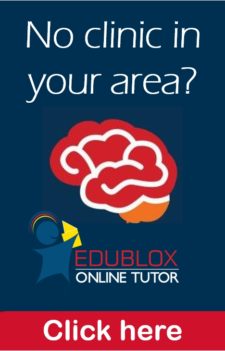
 The article below was published in the Human Science Researcher in June 1990:
The article below was published in the Human Science Researcher in June 1990:
Dyslexia is a growing problem. There is no doubt that many children and many adults have difficulties in reading. Most people regard dyslexia as a learning problem or disability.
The Centre of Dyslexia at the Pretoria Technikon was established at the beginning of 1990, under the direction of Mr W Fourie in cooperation wirh Dr J Strydom, who has developed the AUDIBLOX programme to help dyslexics.
The term dyslexia simply means poor reading, Strydom thinks that this is what it should be seen to mean, nothing more.
There are skills that form the foundation of the skills of reading and spelling. If a child has not adequately mastered these skills he will be a poor reader. Improved reading will only be achieved by first practising and developing the basic reading skills.
Skills
There are two levels of learning, incidental and intentional learning. A child is born with the ability to learn incidentally, but he must be taught to learn intentionally.
Intentional learning is a skill and any skill improves with practice. This approach offers a logical explanation for the success of the AUDIBLOX programme in all types of learning problems including dyslexia.
The programme aims at providing structured exercises in order to raise the level on which learning occurs so that effective, intentional learning can take place.
Motivation
It creates a positive learning attitude within the child and increases his willingness to explore further.
If the initial experience is a stable emotional one it will create willingness to become motivated. Concentration is not an incidental occurrence, but is specifically motivated. The length and effectively of the child’s concentration form an integral part of his motivation.
Reading requires two acts of concentration: word recognition and an understanding of the meaning of the words. If a child’s concentration is limited, he must constantly switch between the two. This will decrease his ability to read. As the child’s ability to concentrate improves so will his ability to read improve.
The programme also aims to improve the child’s perception, his ability to use all three levels of reasoning, namely: concrete, schematic and abstract, numeracy, memory and school readiness.
Involvement
It is offered in both English and Afrikaans to persons of any age. The parents are actively engaged because it is from them that the language is learnt. They attend the centre once a week and receive work which they then have to do with the children at home. The stress to learn is taken from the child as the parents assume responsibility.
Results will be assessed at the end of June and again at the end of the year.
Ultimately Mr Fourie would like to train others to work with the programme and create further centres at universities, colleges of education and technikons.






Leave a Reply